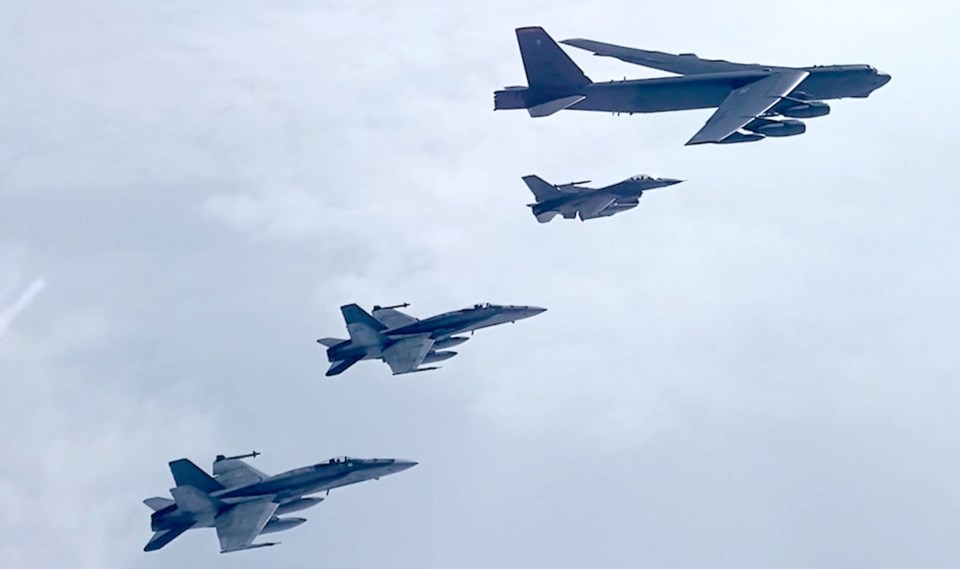To the editor:
In a recent Wall Street Journal article penned by my cousin Christopher Mims, the use of cutting-edge #technologies to detect and combat #forest #fires in the USA was highlighted.
As I read through the article, I couldn't help but wonder about the potential applications of such technology in #Canada, where we too have been grappling with increasingly severe forest fires due to climate change. This got me thinking: Could #NORAD, the North American Aerospace Defense Command based in North Bay play a pivotal role in safeguarding Canadians from the devastating impacts of climate-related disasters, just as it has done for decades in defense against military threats?
Christopher Mims' article delves into the promising field of technology-driven forest fire detection, emphasizing the importance of proactive measures to combat the growing menace of #wildfires in the United States. These measures include the utilization of #satellites, #drones, and (#AI) artificial intelligence to swiftly detect and respond to forest fires before they escalate into catastrophic infernos. Given the shared border and close cooperation between Canada and the United States, it is natural to consider how such innovations could be extended to protect our Canadian forests and communities.
Canada has faced its own share of devastating wildfires in recent years, especially this year. Canadians have witnessed an alarming surge in forest fires that ravaged vast swaths of land and posed serious threats to both human lives and the environment. The need for more effective tools and strategies to combat these fires has never been more apparent.
This is where #NORAD, primarily tasked with defending North American airspace, can expand its mission to address #climate-driven disasters. NORAD has a long history of cooperation and expertise in detecting threats, and it could leverage its capabilities to protect Canadians from severe climate events like forest fires.
One of the key takeaways from Mims' article is the pivotal role that satellites play in early detection. NORAD already operates a network of #radars and satellites to monitor airspace for potential security threats. These assets could be repurposed to monitor forested regions for signs of wildfires. Advanced fire detection algorithms, powered by artificial intelligence, could be integrated into NORAD's existing systems, enabling rapid identification of fires and their precise locations.
Moreover, NORAD could collaborate with agencies like the Canadian Space Agency to enhance our satellite capabilities further. Expanding our satellite network to provide continuous, high-resolution imagery of our forests would allow us to monitor fire-prone regions more effectively, ensuring early detection and response.
Another aspect to consider is the use of drones. #Drones equipped with advanced sensors and imaging technology can provide real-time data on fire behaviour, helping firefighters make informed decisions. NORAD could establish a fleet of specialized wildfire drones that can be rapidly deployed to assess the situation and guide firefighting efforts.
Furthermore, NORAD's experience in coordinating responses and mobilizing resources could be invaluable during large-scale wildfires. By working closely with provincial and territorial governments, as well as local firefighting agencies, NORAD could serve as a central hub for disaster response, ensuring a swift and coordinated effort to combat wildfires.
Additionally, NORAD's expertise in communication and data sharing could facilitate the dissemination of critical information to the public. During a wildfire, timely and accurate information can save lives. NORAD could establish a dedicated communication channel to provide updates on fire conditions, evacuation orders, and safety instructions.
Of course, adapting NORAD's mission to include climate-driven disaster response would require careful planning and resource allocation of taxpayers' money. It would also necessitate cooperation between the Canadian and U.S. governments to ensure a seamless transition into this expanded role. However, the benefits of such an initiative are clear: enhanced protection for Canadians and our natural environment in the face of escalating climate-related threats.
As we grapple with the increasingly severe impacts of climate change, it is imperative that we explore innovative solutions to protect our communities and natural resources. Leveraging NORAD's existing capabilities and infrastructure to combat forest fires and other climate-driven disasters is a logical step forward. By embracing technology and collaboration, we can better prepare for and respond to the challenges posed by our changing climate.
David Thompson
North Bay



